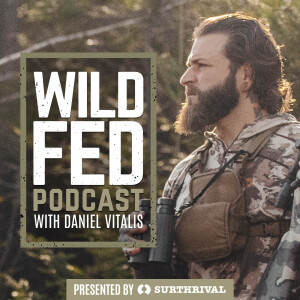
- Podcast Features
-
Monetization
-
Ads Marketplace
Join Ads Marketplace to earn through podcast sponsorships.
-
PodAds
Manage your ads with dynamic ad insertion capability.
-
Apple Podcasts Subscriptions Integration
Monetize with Apple Podcasts Subscriptions via Podbean.
-
Live Streaming
Earn rewards and recurring income from Fan Club membership.
-
Ads Marketplace
- Podbean App
-
Help and Support
-
Help Center
Get the answers and support you need.
-
Podbean Academy
Resources and guides to launch, grow, and monetize podcast.
-
Podbean Blog
Stay updated with the latest podcasting tips and trends.
-
What’s New
Check out our newest and recently released features!
-
Podcasting Smarter
Podcast interviews, best practices, and helpful tips.
-
Help Center
-
Popular Topics
-
How to Start a Podcast
The step-by-step guide to start your own podcast.
-
How to Start a Live Podcast
Create the best live podcast and engage your audience.
-
How to Monetize a Podcast
Tips on making the decision to monetize your podcast.
-
How to Promote Your Podcast
The best ways to get more eyes and ears on your podcast.
-
Podcast Advertising 101
Everything you need to know about podcast advertising.
-
Mobile Podcast Recording Guide
The ultimate guide to recording a podcast on your phone.
-
How to Use Group Recording
Steps to set up and use group recording in the Podbean app.
-
How to Start a Podcast
-
Podcasting
- Podcast Features
-
Monetization
-
Ads Marketplace
Join Ads Marketplace to earn through podcast sponsorships.
-
PodAds
Manage your ads with dynamic ad insertion capability.
-
Apple Podcasts Subscriptions Integration
Monetize with Apple Podcasts Subscriptions via Podbean.
-
Live Streaming
Earn rewards and recurring income from Fan Club membership.
-
Ads Marketplace
- Podbean App
- Advertisers
- Enterprise
- Pricing
-
Resources
-
Help and Support
-
Help Center
Get the answers and support you need.
-
Podbean Academy
Resources and guides to launch, grow, and monetize podcast.
-
Podbean Blog
Stay updated with the latest podcasting tips and trends.
-
What’s New
Check out our newest and recently released features!
-
Podcasting Smarter
Podcast interviews, best practices, and helpful tips.
-
Help Center
-
Popular Topics
-
How to Start a Podcast
The step-by-step guide to start your own podcast.
-
How to Start a Live Podcast
Create the best live podcast and engage your audience.
-
How to Monetize a Podcast
Tips on making the decision to monetize your podcast.
-
How to Promote Your Podcast
The best ways to get more eyes and ears on your podcast.
-
Podcast Advertising 101
Everything you need to know about podcast advertising.
-
Mobile Podcast Recording Guide
The ultimate guide to recording a podcast on your phone.
-
How to Use Group Recording
Steps to set up and use group recording in the Podbean app.
-
How to Start a Podcast
-
Help and Support
- Discover

WildFed Podcast — Hunt Fish Forage Food
Sports:Wilderness

Prairie Restoration, Food, Medicine & History with Kelly Kindscher, PhD — WildFed Podcast #120
We’ve got a great show for you today with Kelly Kindscher, PhD. He’s the author of Edible Wild Plants of the Prairie, a senior scientist at the Kansas Biological Survey and a Professor in the Environmental Studies Program at the University of Kansas.
His research specialties are plant community ecology, conservation biology, restoration ecology, botany, and ethnobotany. His passion is for wild prairies, wild plants, and wild landscapes.
If you’ve got questions about the ecology of the prairie, Kelly Kindscher is your guy. And, we've got questions about the prairie!
We love interviews like this, deep dives on specific topics — especially getting to explore the big history of landscapes and their ecology. In our short lifetimes, we get such a brief glimpse into the places we live or visit, so drawing upon the incredible history and science to piece together a big-picture story, to us, is both revelatory and thrilling.
Today, of course, we’re talking about the prairie, how it was formed — which, most interestingly, had strong anthropogenic influence — and what happened from the first settlement there, up to European contact, and right up to the present.
Having visited the prairie last year, not for the first time, but for the first time with intentionality, Daniel is keenly interested in this ecological treasure. And, having eaten from what it provides, in the form of bison, chokecherries, and prairie turnips, we really value the message that Dr. Kelly is sharing. That our prairie restoration efforts must include edible and medicinal plants if we hope to make a lasting change in how modern Americans relate to this crucial ecotype. Trying to rebuild it, exclusive of people just means people forget about it. Out of site, out of mind. But creating landscapes that humans can interact with, particularly at the gustatory level — which incidentally is likely the reason the prairies were built by humans in the first place — means that people, rather than forgetting, will instead be interacting. What we care about we protect.
It’s a beautiful and timely message about a place whose importance can’t be overstated. And of course, this same thinking can be applied to any and all landscapes. Like Kelly, we think tending wild landscapes for food and medicine is the missing component that gives modern people a reason to care. The answers are already there, they just need to be implemented.
View full show notes, including links to resources from this episode here: https://www.wild-fed.com/podcast/120
More Episodes
Create your
podcast in
minutes
- Full-featured podcast site
- Unlimited storage and bandwidth
- Comprehensive podcast stats
- Distribute to Apple Podcasts, Spotify, and more
- Make money with your podcast
It is Free
- Privacy Policy
- Cookie Policy
- Terms of Use
- Consent Preferences
- Copyright © 2015-2025 Podbean.com




